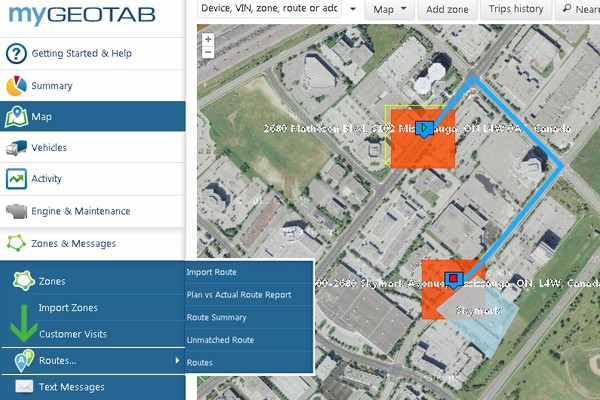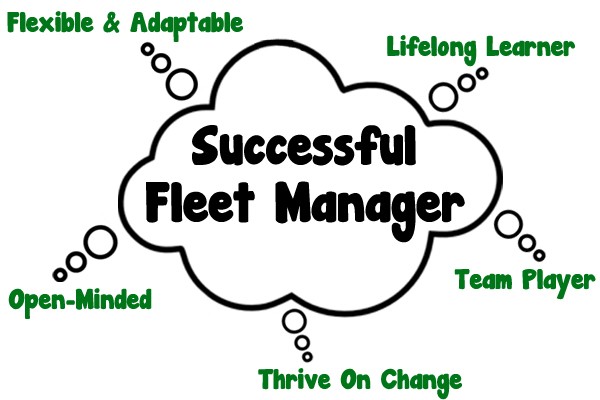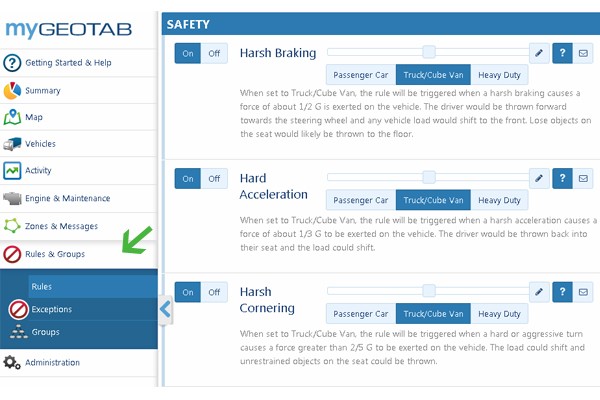GPS Fleet Tracking Systems: Common Myths
GPS Tracking often gets a bad name. Many employees may feel uncomfortable with GPS fleet tracking systems being installed on their vehicle. Employers may feel it is simply too expensive and they will not have the time to make it beneficial. These are just a few of the myths that will be covered in this article. Fleet tracking is implemented to help everyone. Not just the employer, the employees, and business as a whole.
1. We Trust Our Employees Therefore Have No Need For GPS Fleet Tracking.
GPS fleet tracking systems are not intended to monitor your employees’ every little move. It is geared to reduce operating costs and inefficiencies in the field. GPS tracking systems have been proven to reduce maintenance and fuel costs, optimize dispatching and routing, increase response time and accuracy to customers, and provide safety and security for drivers.
- In general you know you can trust your employees, but without GPS tracking how can you be sure?
- Do you know how much your vehicles are being used for personal use?
- If company vehicles are being used for personal use then aren’t employees using your gas and creating wear on your vehicles? What is this costing your company?
- Are your employees doing work on the side, with your company’s vehicle?
- Is your company being put at risk by employees doing work on the side in your vehicle?
- Without a GPS tracking system, how much is this potentially costing your company in wasted fuel and wasted time?
2. GPS Fleet Tracking Systems Are Complicated to Use And Install.
As long as the tracking system you are interested in purchasing is plug and play, it’s easy to install. There is no messy wiring or complicated installation. When it comes to using the system, make sure your vendor is willing to work with you to learn the ins and outs of the software. This includes:
- Get you started and teach you the basics of the system
- Show you how to interpret data and apply it to save on fuel and operational costs
- Provide any support you need throughout the ENTIRE time the service is provided to you NOT just when the system is first implemented
- Have available technical and sales support to cover any issues you may be having
3. Our Drivers Will Quit if we Install GPS Fleet Tracking.
Our personal experience with a vast customer base proves this theory untrue. You would be surprised at how much some employees depend on GPS tracking for time card verification, routing information, roadside assistance and verification between any customer and driver disputes. GPS fleet tracking systems often eliminate annoying and time-consuming paper work for drivers and provide extra security.
GPS Tracking aims to benefit the company as a whole, it is not used to get drivers in trouble. It can help:
- Verify and possibly reward good behavior
- Proof of delivery and length of service calls. For example: verify employees word when held against customer word
- Increase driver safety
- Provide proof of meeting performance goals
4. GPS Fleet Tracking Systems Are Not Affordable
Of course cost is an understandable concern to have. GPS tracking systems normally require a monthly fee and an investment in hardware for each vehicle. Even though these costs may not seem like a necessary expense the system will not only preform necessary tracking of your vehicles but will also identify bad practices that cost companies up to thousands of dollars every month. These expenses include: Excess idling, poor driving habits (reckless driving), excess overtime, vehicle maintenance, inefficient routing, side trips and more. The costs of these monthly reoccurring inefficiencies quite often exceed the monthly investment of a GPS tracking system. Return on investment happens as early as the first couple months for some companies.
- Many companies can’t afford NOT to implement a GPS tracking system.
- ROI usually happens within one to three months of investment
- Only the first month payment is considered capital outlay. The system then becomes an operating expense rather than a capital cost and often businesses can receive a tax deduction.
- Without implementing the system, how much is wasted time and fuel costing your company?
5. All GPS Systems Are The Same.
Many business owners may think that GPS tracking alone (knowing where their vehicles are at all times) is good enough. If you are only utilizing GPS fleet tracking systems to track your vehicles you are missing out on all the other great features. The business optimizing potential of the system is huge and goes well beyond just simple tracking.
Many GPS tracking providers will only set up the basic tracking capabilities and refuse to make the commitment in helping customers to use this technology to its full potential. When choosing GPS fleet tracking for your business make sure your future provider has an interest in learning about your business, the goals you hope to achieve, and the money you want to save through the system.
There is some truth to the myth of all GPS fleet tracking systems being the same; many providers may sell a similar technology but the true value comes in the relationship you build with that provider over time. A Fleet Coordinator states:
“Not only did I find that we were overpaying for an antiquated technology from our previous provider, but also that we were way behind in ease of installation, functionality, and reporting options. It wasn’t long before we saw what fleet tracking could really do for us thanks to GoFleet. The ease of plug & play technology, custom reporting that goes beyond “the norm”, and perhaps my favorite part, talking to the same person every time I call!”
6. GPS Fleet Tracking Systems Are Not a Necessity
Fleet managers and business owners often think they can track their drivers well enough through cell phone communication.
A cell phone may be a valuable tool but it cannot provide anywhere near the amount of useful information a tracking system can such as: engine status, real-time vehicle location, history of stops, stop times, and many other valuable metrics including fuel consumption, mileage and speeding.
If you think cell phones can track your drivers well enough, ask yourself these questions:
- Do some drivers give you the answers you want to hear, instead of their actual location?
- What about those drivers who don’t even know where they are?
- How much of your own time is wasted asking your drivers for their location?
- How much is your company wasting on time and fuel?
7. We Are All Too Busy To Use GPS Fleet Tracking Systems
If you relate to this statement then it is a warning sign your business is no longer under control. Instead of you running your business, it is now running you.
Are you currently paying supervisors to watch over the workers? Can you afford to pay employees to watch over other employees? GPS will automatically monitor employees and can send you up to date alerts automatically. GPS fleet tracking systems are easy to get set up and running, right away.
For more information on GPS tracking, pricing, or to sign up for a free 30 day trial, please email [email protected].





